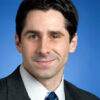Duke Daytime MBA Student Blog

Year of the Rabbit
Hong Kong Diplomat Speaks at Fuqua
The world, by all accounts, has become a very interconnected place in recent years. The time in which a company could do business in one small corner of the world and still thrive has long since passed. In ever y meaningful sense, the East has met the West, and doing business in one necessarily means understanding the other. In few places is this interaction so prominently displayed as in Hong Kong, a city under Chinese rule but with a history of Western governance and business practices. This afternoon, Donald Tong, Hong Kong’s leading economic diplomat to the United States, came to Fuqua to share his thoughts on the island’s success and how future generations would come to understand Hong Kong.
![]() View video of Donald Tong’s talk.
View video of Donald Tong’s talk.
Mr. Tong may have emitted a sense of humor, but I was more struck by the confidence, and almost filial pride, with which he discussed Hong Kong’s recent spate of success. The Gateway City’s achievements since its conversion from British rule only 13 years ago have been numerous, but to hear Mr. Tong tell the story, it was the result of just a little bit of hard work, and the willingness to run a highly transparent and open economy, yet with the backing of the mighty Chinese government and all the resources it commands. He alluded to the recently commenced Chinese New Year as having ushered in the “Year of the Rabbit,” and likened Hong Kong’s energy and flexibility to that of the namesake animal. Further, he ascribed the city’s success not only to business-friendly government policies, but to a willingness of both commerce and government to work together in pursuit of the good for all 7 million of the city’s inhabitants. This contrasts what we see every day on the news in the United States: a very divisive antagonism between the same two entities that have so successfully cooperated and collaborated in Hong Kong. There was a certain air of indebtedness, a belief that Hong Kong’s success was the result of highly efficient and transparent government, and that in turn, the corporate community would benefit the government as well. I dare say there was an implicit trust between the two.
At the outset, Mr. Tong described Hong Kong as the East’s “World City.” As someone who’s never had the pleasure of visiting Hong Kong, I was a little confused by this initially, but as he extolled the virtues of the city, I came to realize that to pigeonhole Hong Kong as merely a former British Colony or a Chinese holding would be quite narrow. He identified scores of wineries that could compete with those in Paris, major American banks holding court, restaurants culling the finest cuisines from Italy and South America, even a Disney outpost. It occurred to me that this city he was describing wasn’t merely representative of Hong Kong, but it was an aspiration of the city of the future, one in which economic barriers and cultural hurdles were essentially stripped down because it no longer made sense to have them around; it was a modern day Xanadu. While I may be making it slightly more utopian than even Mr. Tong intended, it became evident that all the success Hong Kong had witnessed in the past decade was attributable to taking full advantage in a flattening world.



